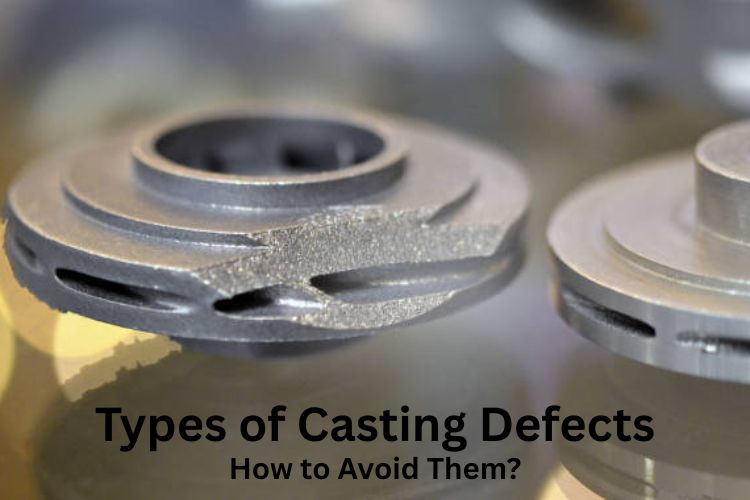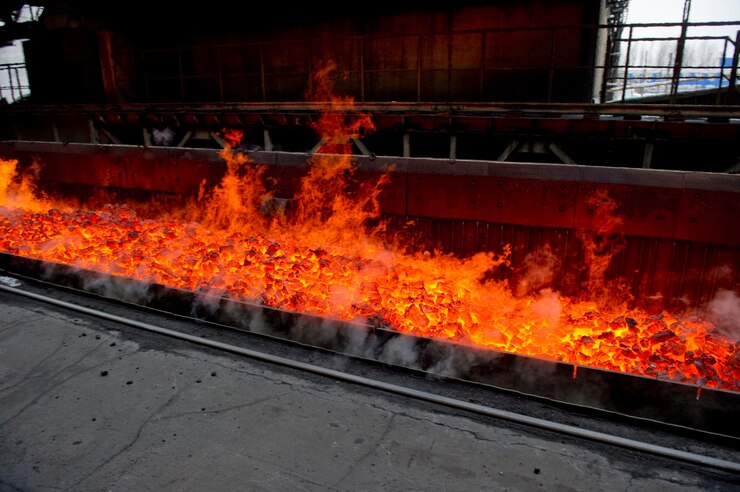Ductile Iron Castings are called spheroidal graphite iron. It transforms the various industries by delivering high durability, strength, and versatility. The unique microstructure of ductile iron is characterized by spherical graphite inclusions and becomes suitable for several applications. If you want to know more about the ductile cast iron and its industrial applications, then here is a blog for you. In this, you will know the applications of Ductile Iron Castings in versatile industries like automotive, agriculture, construction, marine, etc.
Ductile Iron Casting Solutions at RM Technocast
Ductile Iron Castings represent a reliable and smart solution for industries that demand durability, toughness, and long service life. The RM Technocast Manufacturers trust the ductile iron material to produce the casting components and deliver high performance in industries. These solutions also fit the challenging environments.
If you are seeking for material that has high strength and enough flexibility, then Ductile Iron Castings stands at top.
Overview of Ductile Iron Castings
Ductile Iron Casting is the manufacturing method to produce casting products from ductile iron material. Ductile cast iron is an improved form of grey cast iron, consisting of graphite in the form of round spheres. This material is used due to its high strength, wear resistance, and outstanding load bearing capacity.
The process of casting nodular cast iron consists of melting pig iron and then adding compounds like magnesium or cerium. This process transforms the graphite flakes from lamellar form into spherical form, and gives the superior properties to nodular cast iron.
Applications of Ductile Iron Castings
Ductile iron castings are used in diverse industries due to their high-quality mechanical properties and versatility. Some common applications of ductile cast iron include:
- Agriculture
Ductile iron castings are essential in the agriculture industry, where they’re used to give components consisting of tractor elements, plowshares, and harvester equipment. Its durability and wear resistance make it ideal for withstanding the tough conditions and heavy use common in agricultural operations.
- Commercial Vehicles
In the economic vehicle zone, ductile iron is used for crucial components like engine blocks, brake components, and suspension systems. Its high power-to-weight ratio and fatigue resistance are important for ensuring the protection and durability of automobiles that operate under regular pressure.
- Automotive Industry
Another application of ductile cast iron is the automotive industry. The high power-to-weight ratio, good wear resistance, and superior machinability of ductile iron make it best for producing various car components. Engine blocks, crankshafts, camshafts, and suspension components are examples in which ductile iron is extensively used. Its ability to handle high temperatures and stress guarantees the reliability and toughness of these critical elements.
Furthermore, ductile iron’s damping potential, that is advanced to that of steel, facilitates reducing noise and vibration in automobiles, contributing to a quieter and safer experience. The cost effectiveness of ADI Casting also makes it a right option for automakers looking to stability performance and budget concerns.
- Construction and Infrastructure
The construction and infrastructure sectors rely closely on durable and robust materials, and ductile iron fits the budget perfectly. Pipes, fittings, and valves crafted from ductile iron are widely used in water and sewage systems due to their corrosion resistance and potential to resist high pressures. These castings ensure the integrity and longevity of pipelines, reduce protection costs, and minimize the risk of leaks or screw ups.
Ductile iron is hired in the construction of bridges, tunnels, and different load-bearing structures. Its tensile energy and fatigue resistance make it suitable for handling heavy hundreds and dynamic forces. Also, ductile iron manhole covers and grates are common in city infrastructure because of their sturdiness and resistance to effect and wear.
Also Read: Sand Casting Process
- Railway Industry
The railway industry demands substances that could face up to heavy loads, dynamic forces, and environmental pressure. Ductile iron castings are used in the production of railway components inclusive of wheels, couplers, brake discs, and track fastenings. The material’s high tensile energy, sturdiness, and fatigue resistance ensure the protection and reliability of these essential elements.
Ductile iron’s ability to absorb shocks and vibrations is particularly precious in the railway industry, wherein components are subjected to continuous impact and pressure. The material sturdiness and low renovation requirements make contributions to the cost-effective operation of railway structures.
- Heavy Machinery and Equipment
Ductile iron castings are used in heavy machinery and equipment manufacturing, consisting of construction equipment, agricultural machinery, mining systems, and the clothing industry. Components consisting of gears, housings, frames, and brackets are manufactured by using ductile iron castings because of their strength and impact resistance.
- Pipe and Fittings
Ductile iron is used in the manufacturing of pipes and fittings for water and wastewater transportation structures. Its high power and corrosion resistance make it appropriate for underground and above-floor packages, which include water supply, sewage, and irrigation structures.
- Energy Industry
The other applications of ductile iron castings is the energy industry. Ductile iron castings are applied in the power region for applications such as turbine housings, valve bodies, and pump parts. Ductile iron’s high power, resistance to thermal cycling, and corrosion resistance make it suitable for dealing with high-pressure and high-temperature environments.
- Mining
The mining industry needs substances that can bear severe abrasion and impact. Ductile iron castings are best for mining systems along with crushers, grinding turbines, and pumps because of their capability to maintain structural integrity under heavy loads and harsh situations.
- Oil and Chemical Industries
The oil and chemical industries want materials that can take care of extreme situations. Ductile iron fits your budget with its extremely good power and rust-preventing strength. It’s used to make pumps, flanges, tanks, and different tools needed for handling harsh chemical substances or running in high-pressure locations.
Conclusion
Ductile iron castings are the most effective solution for a number of industries due to their high strength, wear resistance, and suitable ductility. Applications of ductile cast iron not only improve manufacturing efficiency but also reduce costs. If you are looking for a great material, ductile iron castings are the best choice.
FAQs
1. What are ductile iron castings?
Ductile iron casting is a manufacturing process that consists of adding elements to molten iron and producing the castings with high ductility, strength and wear resistance. This process consists of the melting and alloying, magnesium treatments, pouring and molding, and cooling and solidification.
2. Which industries use ductile iron castings?
The industries that gain benefits from the ductile iron castings process are automotive, water, pipelines, construction, heating systems, oils and gas industries, chemical plants, and energy sectors.
3. Why is ductile iron used in sewer and water pipes?
The ductile iron is used in sewer and water pipes due to high tensile strength, corrosion resistance and flexibility. The applications of ductile cast iron enable the ductile iron pipes to withstand pressure and environmental conditions in sewage and water distribution systems.
4. Is ductile iron suitable in marine industries?
Yes, ductile iron is suitable in marine industries because it is highly resistant to corrosion. It makes it an excellent option for marine applications such as rudders, propellers, and anchors. Its durability ensures that marine parts can withstand harsh environments without damage quickly.
5. What are the environmental impacts of ductile iron production?
Ductile iron production consists of energy consumption and CO2 emissions. It has a long lifespan and recyclability and becomes a sustainable option in the long term.



